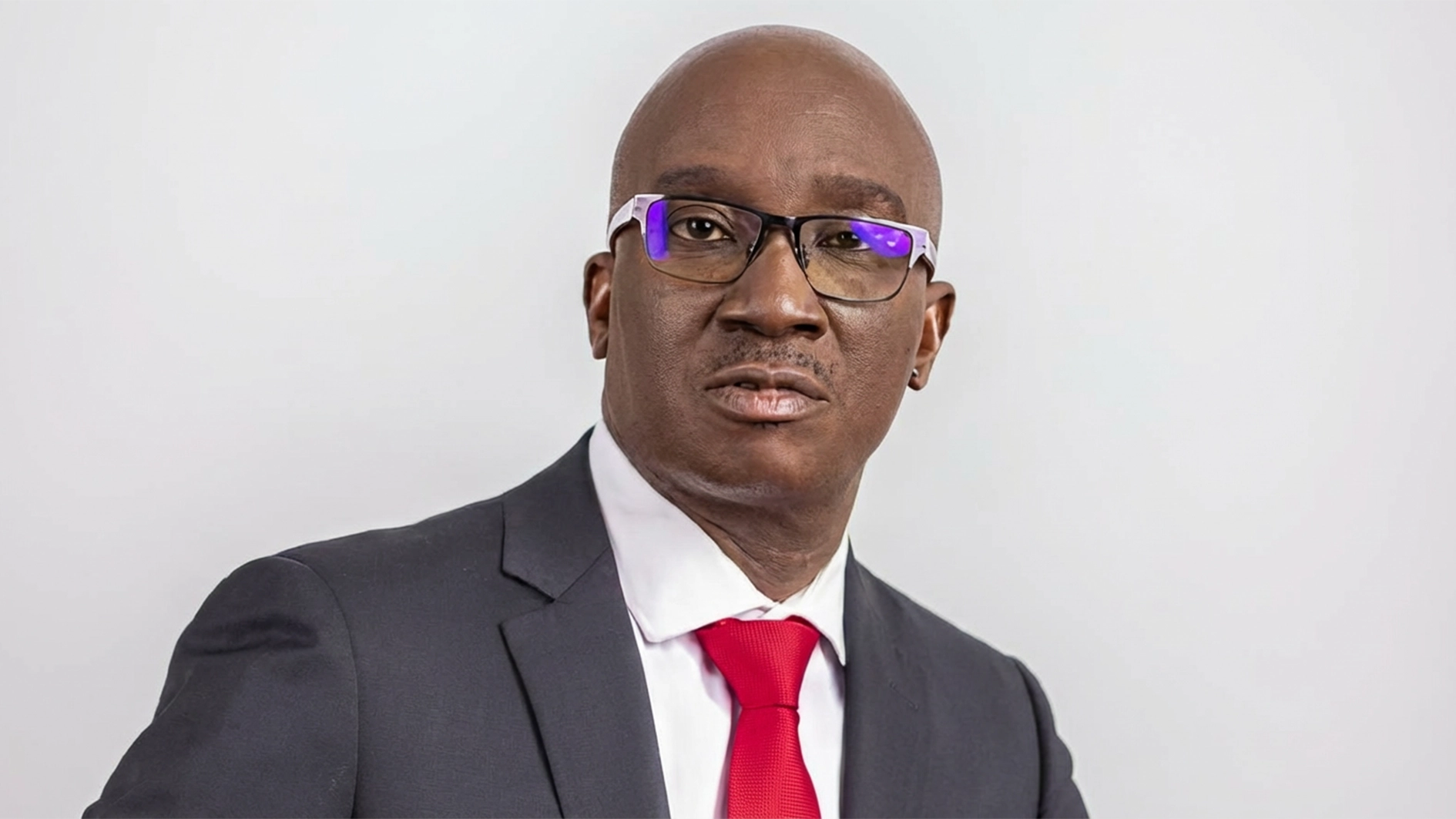In the most accomplished Nollywood gangster fashion, 10-year-olds and other kids in primary and secondary schools have become a living horror to their fellow pupils and even in their neighbourhoods. In this report, IYABO LAWAL explores the underbelly of rising cultism and violence among Nigerian youths.
They pushed him to the ground. He landed on his face. One of the boys grabbed him by the scruff of his neck. “Kneel down, there!” the pupils barked at their teacher. As the hesitant teacher contemplated whether to obey the order of his pupils, he got a smashing slap from behind. He needed no reminder that he should obey the order.
“In the classroom, you think you’re the master,” one of the gang members said. “We’ll show you who the master is.”“You can beat students anyhow? You can talk to us anyhow!” another one bellowed.
The teacher was released, not after being given a few strokes of the cane. He was warned not to reveal their identity or else he would be dealt with further. The teacher resigned from the school, reported the case to the school authorities and the police. Fortunately, the pupils involved in the matter were later dismissed from the school.
When the news broke in 2022 that 18 schoolchildren in Abeokuta, Ogun State, were arrested as cult members, many did not pay attention to the monster feeding on inattention in Nigeria’s elementary and post-secondary schools.
The then Public Relations Officer of the Nigeria Security and Civil Defence Corps (NSCDC), Kareem Olanrewaju, had said of the arrests: “These seven students of Nazareth were arrested at the school premises while they were initiating new members into cultism by making incisions on their bodies.
“We also arrested 11 students of Lisabi High School for conducting themselves in a way that breached the peace in the school. We will not charge them to court because of their age. They are underage and cannot be prosecuted. The command will meet with the Ministry of Education in the state to decide what to do for the students.”
“We observed that they have been misguided. Now that they have been caught, there is a need to guide them, and we will give them the right knowledge. We want all hands to be on deck to reduce the level of this immorality among our children,” the NSCDC spokesman pointed out.
Similarly, a former Police Commissioner in Lagos, Imohimi Edgal, urged the then governor, Akinwunmi Ambode, to declare a state of emergency on cultism as he called on the Lagos State House of Assembly to come up with stiffer penalties for cultism, against the backdrop of primary school children being recruited into cult groups. The police, however, admitted that they would adopt the carrot and stick approach in dealing with the child cultists’ phenomenon.
“I want to use this opportunity to call on the government to declare a state of emergency on cultism. The House of Assembly needs to also award stiffer punishment for cultists because the practice of initiating our children in primary schools is worrisome,” Edgal had said.
Well, that appeared to have fallen on deaf ears as this year’s February incident revealed the police apprehending two individuals for initiating 12 elementary and secondary school pupils of Egan Primary and Secondary Schools, Igando, into cultism. The police said the kids were initiated into the AWAWA confraternity group in Lagos – they were aged between eight and 16 years old.
The eldest and only female, a Junior Secondary School III student, was the first to be initiated into the cult group, and was allegedly instrumental in luring others in elementary one, two, three, four, five and six to be part of the group.
Today, Nigerian pupils in primary and secondary schools have become more involved in cultism and violent activities than ever before in the history of the country.
Last year, the police said four teenagers, said to be cultists, launched a violent onslaught on a school – Community Secondary School, Biogbolo, in Bayelsa State – armed with assault rifles.
According to media reports, the attack came some hours after the state’s Ministry of Education expelled seven pupils the school found to be cult members.
In late 2019, the police in Delta State arrested 28 teenage cult members belonging to a group known as the ‘Future Trigger Boys.’ The police said the suspected cultists, aged between 13 and 16 years, were rounded up during school hours following intelligence reports from members of the public.
“These are children who were sent to school to study, but regrettably, they form cult groups to terrorise their fellow pupils and the entire school. They call themselves the ‘Future Trigger Boys.’ Since we arrested them, many of their parents have been on our neck,” the police said.
In 2018, the Ondo State Police Command arrested four secondary school pupils for being involved in cultism. They were reported to be pupils of St. Francis High School in Akure –a school reputed for violence.
In September 2019, the Special Anti-Robbery Squad arraigned 12 pupils of Oduduwa Junior Secondary School, in Lagos, before an Ikeja Chief Magistrate’s Court, for belonging to a cult. The pupils were arraigned on a three-count charge of conspiracy and membership of the Gangsters Confraternity, an unlawful society.
In August last year, 17 pupils were arrested by the police and the Lagos Neighbourhood Safety Corps (LNSC) for cult-related activities. Among those arrested was a teenager said to be the leader of the group. The teenager, a Junior Secondary School (JSS III) pupil, was said to be armed with cutlasses and knives during his arrest in preparation for an attack.
In the same month, seven secondary school pupils (from Iponri Senior High School, Akinto Senior High School, Surulere, Stadium High School, and Oloye Comprehensive College, Orile) were arrested and arraigned before an Ebute Meta Magistrate Court, Lagos, for being involved in hooliganism.
Speaking on their arrest, the police spokesperson said, “We arrested the students for always causing trouble every Friday at Costain, Alaka, and Orile areas. The last incident that led to their arrest was the attack on some innocent persons with cutlasses and other dangerous weapons. They were released to their parents on bail.”
The school system is meant to impart knowledge and societal norms in children with a view to making them become responsible members of the larger society as they grow up, but current acts of hooliganism are making that difficult to achieve. However, in the last 10 years, violence has become a norm in Nigeria’s primary and secondary schools.
According to experts in the sector, the level of indiscipline has escalated in schools over the years. Teachers, as well as parents, express frustration at the number of serious offences, reported each week.
Indiscipline implies the lack of self-control, disobedience, resulting in blatant violation of rules, leading to hooliganism. Not a few think that the current wave of indiscipline among secondary school students is disturbing, and therefore, called for immediate intervention.
Among other things, experts noticed too that the positive influence teachers wield on pupils has begun to wane drastically. More than ever before, pupils – and sometimes even parents – hold teachers in derision.
The flipside of this phenomenon is that effective learning and teaching is disrupted. Experts further noted that to remediate the situation, all hands must be on deck; teachers, parents and the government must play their roles very well to achieve lasting sanity in public schools to make them conducive for learning and teaching.
As society has become more permissive than ever before, studies indicate that parents are primarily blamed for the rot in students’ behaviour. A research finding indicates that “the difference associated with different home background influences one’s life, which in turn, influences one’s behaviour.”
The research also revealed that teachers’ attitude sometimes contributes to indiscipline among secondary school students – stating that schoolchildren are naturally good, but teachers corrupt them. In addition, the report noted that some teachers ignore students’ problems and complaints, whether academic or psychological.
Though there are no reliable statistics, anecdotes suggest that more and more children are living in broken homes, some other kids have been rejected by estranged parents, while others have become disillusioned by the poverty-stricken environment in which they are growing up.
The offers by secret cults have thus become alluring to them; giving them false hope of euphoria and an illusion of freedom and invincibility – along with a sense of belonging to a true family. Yet, sooner or later, these young ones realise that they are going from the frying pan to the fire.
Therefore, to stem the rising tide of cultism, constant attention must be given to parental influence, teachers’ attitude, and the review of rewards for good behaviour and sanctions for deviant actions.
Education experts urged that the home and school environment should engender an atmosphere of care, love and understanding; conducive for learning.
Besides, they stated that libraries, playgrounds, laboratories, and all-year-round sporting and academic competitions must be factored into the learning school calendar to engage the pupils positively.
If these things are put in place, they believe, hooliganism will be drastically reduced, if not completely eliminated.
“Current economic realities in Nigeria are exerting a huge influence on every citizen – including the younger ones. Subscribing to cultism is an indication that primary and secondary school pupils are feeling the heat of a society that seems to be staggering on the edge, as corruption, public stealing, and violence keep increasing.
“They have become witnesses to how their parents became victims of a system they worked hard for, with no commensurate benefits,” Dr Tijani Adeoye, a public analyst, stated.
Similarly, a child psychologist, Ademidun Olufowobi, noted that the kids’ rebellion isn’t just a matter of deviation, but a symptom of something more insidious.
“They have seen how the system treats their adults, parents and those who struggle to maintain good behaviours. They have seen in the larger context that stealing and being unruly pay more than being civil.
“They have seen how the government rewards militancy, negotiates with terrorists and offers amnesty to kidnappers and herdsmen. They have seen their parents and older ones applaud the very people the society should hold in derision. They understand the hypocritical nuances going on. We need to have a rethink as a people to get these students out of the doldrums,” Olufowobi stated.






